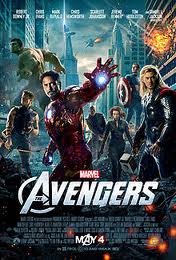
I just read a Facebook post from a filmmaker acquaintance who declared his status by saying he was not going to see The Avengers, ever, because “mindless, pointless” entertainment like Whedon’s Marvel-based story makes it difficult for real film art to have a chance. I had hoped to return to blogging with a review of The Avengers, but I feel I must instead defend a film I just returned from watching, and which I would like to declare was far from pointless.
Anyone who knows the struggle of Joss Whedon’s career knows that his lack of sustained commercial success has much to do with the depth of his storytelling. Yes, Buffy and Angel had good runs on television and developed still-faithful legions of cult fans, but they never achieved the audience numbers to be called popular favorites. Firefly and Dollhouse fared even worse. Much of the ratings problems with these shows had to do with narrative complexity, witty dialogue, and the guts to sacrifice beloved characters in the service of storytelling – in the service to making meaningful points. Regardless of lack of commercial success, Whedon’s shows are regularly referenced by those who study and write about “Quality American Television.” Simply stated, you have to have a mind to appreciate Whedon’s storytelling, which is never mindless.
For those who are staying away from the Avengers party because of preconceived notions of art, I would like to say that when placed in Joss Whedon’s hands, Marvel’s superheroes become every bit as artful as Kurosawa’s Seven Samurai, film characters Whedon is sure to have studied, carefully, as a film student as Wesleyan University under mentor (and trustee emeritus of the American Film Institute) Jeanine Basinger. Hulk’s internal conflicts are as beautifully portrayed as any art-film struggle, and the action is as good, if not better, than anything John Ford captured on film. And the dialogue, one of Whedon’s greatest talents, stands up against any Coen Brothers film. The point of it all? The point is one of Whedon’s enduring themes; not even a superhero can walk alone. Whedon has spent much of his career rewriting myths or film conventions, and one of those is the Western Hero who, while able to save the community, has no place in it. Whedon’s heroes, on the other hand, work best when they exist in community, however uncomfortable forming that community may be. This is a very feminist idea indeed, and one he is justifiable proud of. In making his points, Whedon is always at war with mindlessness, he just does it so skillfully that those points become widely accessible.
And maybe that’s why some people would like to skip The Avengers party in favor an “art” film. There might be too many regular “folk” at the party. And those regular folk might actually “get” the intelligent points built into the complex narrative and dressed in witty dialogue. If that’s what some people are afraid of, I’m sure Joss Whedon would be happy if they skipped the celebration.
Anyone who knows the struggle of Joss Whedon’s career knows that his lack of sustained commercial success has much to do with the depth of his storytelling. Yes, Buffy and Angel had good runs on television and developed still-faithful legions of cult fans, but they never achieved the audience numbers to be called popular favorites. Firefly and Dollhouse fared even worse. Much of the ratings problems with these shows had to do with narrative complexity, witty dialogue, and the guts to sacrifice beloved characters in the service of storytelling – in the service to making meaningful points. Regardless of lack of commercial success, Whedon’s shows are regularly referenced by those who study and write about “Quality American Television.” Simply stated, you have to have a mind to appreciate Whedon’s storytelling, which is never mindless.
For those who are staying away from the Avengers party because of preconceived notions of art, I would like to say that when placed in Joss Whedon’s hands, Marvel’s superheroes become every bit as artful as Kurosawa’s Seven Samurai, film characters Whedon is sure to have studied, carefully, as a film student as Wesleyan University under mentor (and trustee emeritus of the American Film Institute) Jeanine Basinger. Hulk’s internal conflicts are as beautifully portrayed as any art-film struggle, and the action is as good, if not better, than anything John Ford captured on film. And the dialogue, one of Whedon’s greatest talents, stands up against any Coen Brothers film. The point of it all? The point is one of Whedon’s enduring themes; not even a superhero can walk alone. Whedon has spent much of his career rewriting myths or film conventions, and one of those is the Western Hero who, while able to save the community, has no place in it. Whedon’s heroes, on the other hand, work best when they exist in community, however uncomfortable forming that community may be. This is a very feminist idea indeed, and one he is justifiable proud of. In making his points, Whedon is always at war with mindlessness, he just does it so skillfully that those points become widely accessible.
And maybe that’s why some people would like to skip The Avengers party in favor an “art” film. There might be too many regular “folk” at the party. And those regular folk might actually “get” the intelligent points built into the complex narrative and dressed in witty dialogue. If that’s what some people are afraid of, I’m sure Joss Whedon would be happy if they skipped the celebration.

 RSS Feed
RSS Feed